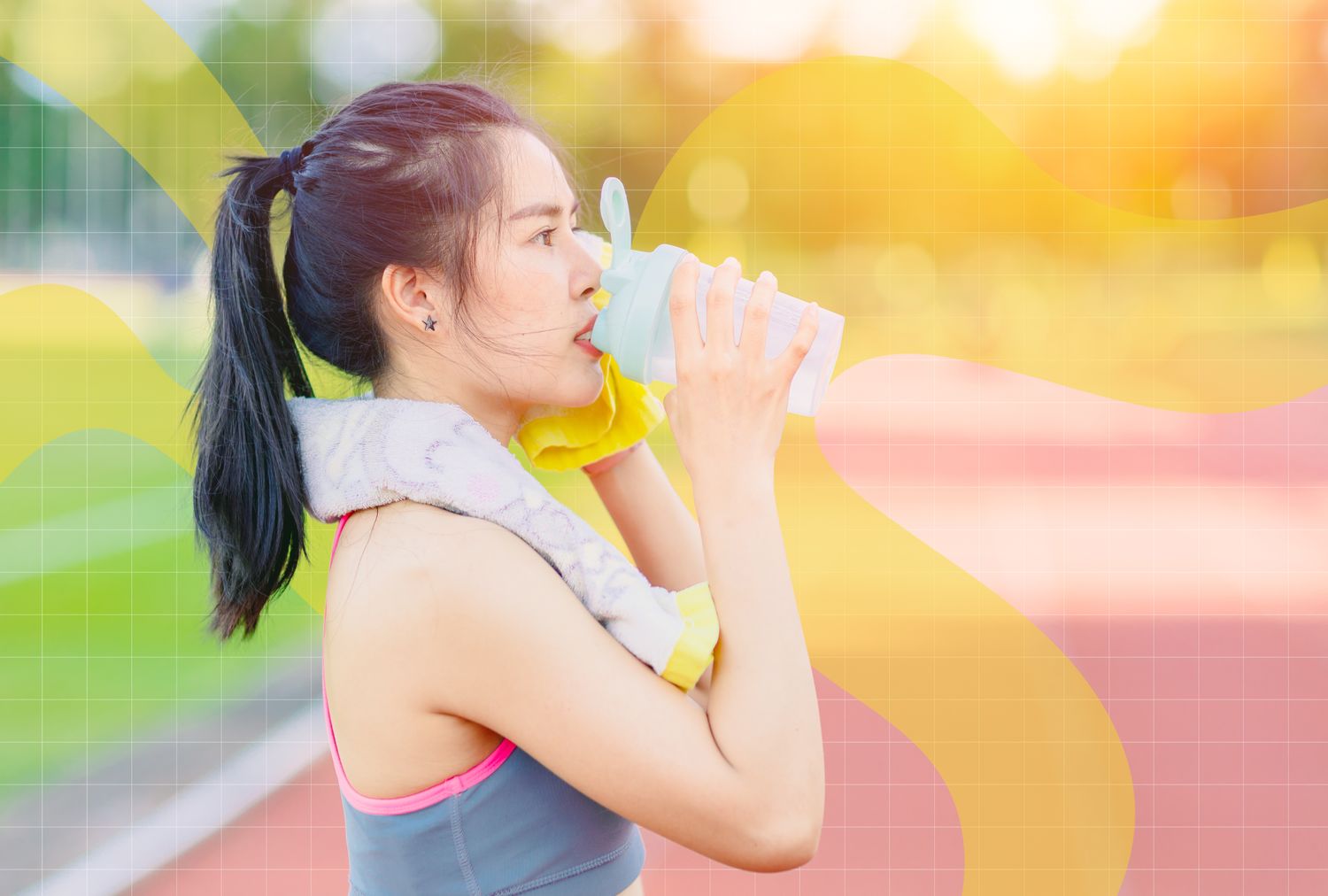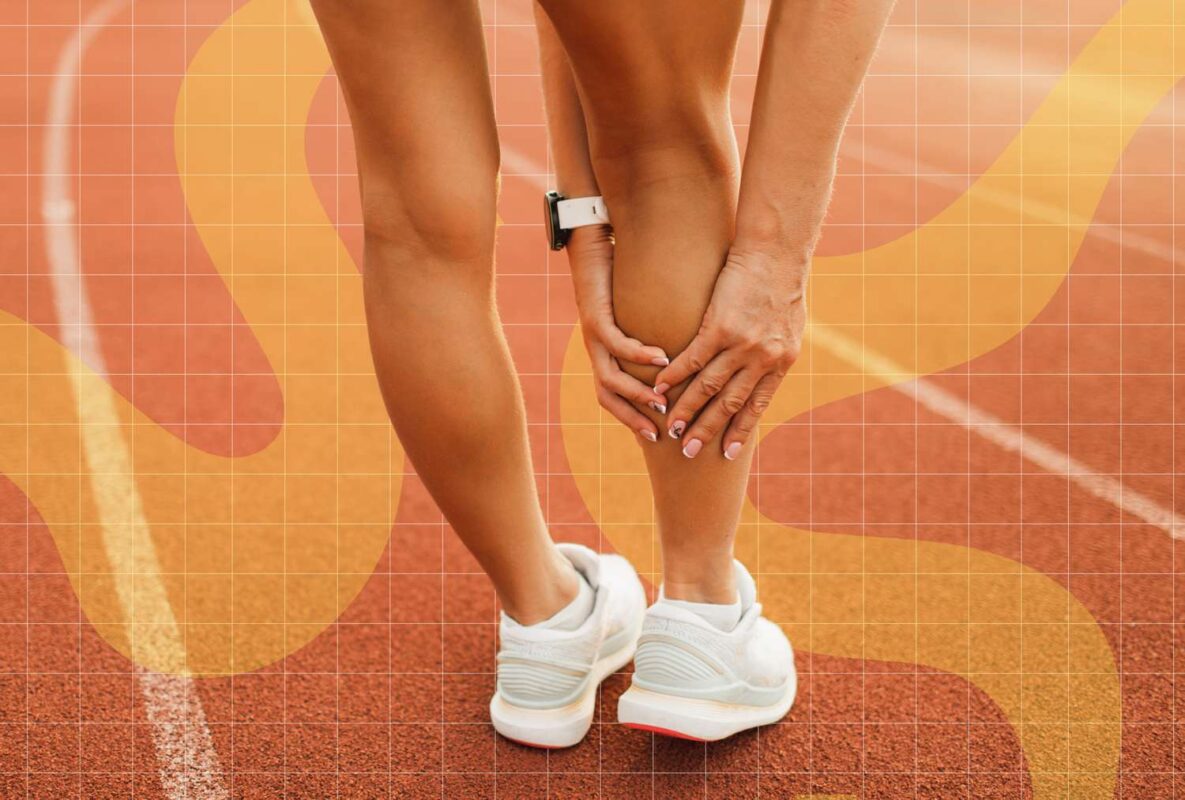Blog
The Best Time to Take Electrolytes for Max Absorption

- Electrolytes, like sodium, potassium and magnesium, help us maintain fluid balance.
- They may help prevent dehydration from exercise, illness and hot, humid weather.
- Experts say many factors determine the best time to take electrolytes for max absorption.
Whether you’re already taking electrolytes or are just thinking about it, you may be wondering if there’s an optimal time to take them. Makes total sense, especially since we’re always hearing how important electrolytes are for our health.
But, before we dive into the timing question, what, exactly, are electrolytes? “Electrolytes are minerals found in your blood that help regulate fluid balance in your body,” says sports dietitian Christina Chu, M.S., RD, CSSD. “Electrolytes have many functions, including maintaining fluid balance, muscle contraction, nerve signaling and balancing your body’s pH levels.” The major electrolytes are sodium, potassium, calcium, magnesium and chloride.
Given how important electrolytes are for our bodies, it’s natural to want to take them at precisely the right time for optimal absorption. So, you might be surprised to learn that sports dietitians say there is no best time to take electrolytes. Because we all have different electrolyte needs, the answer depends on a long list of factors like exercise, climate, travel and more.
Read on to learn how to determine the best time to take electrolytes for your unique needs, plus the best ways to get them.
Factors Affecting Electrolyte Absorption
How well your body retains and absorbs electrolytes is a bit of a balancing act that can depend on multiple factors, like these.
Sodium
Sodium is perhaps the most talked-about electrolyte thanks to its ability to hold water. It’s naturally found in many foods in small amounts, and is often added in large quantities to foods like crackers, soups, tomato sauce, canned foods and bread. On average, most of us consume way too much of it. However, some people do need more, especially those who work out for an hour or longer or who sweat heavily during exercise. Without enough sodium, they may experience muscle cramps or become dehydrated, says sports dietitian Amy Goodson, M.S., RD, CSSD.
The amount of sodium you eat can influence how well your body retains fluids. “The body attempts to conserve sodium,” says Goodson. “A low-sodium diet may make it harder to retain fluid during and after exercise, especially if you’re a heavy sweater [as] the body adapts to conserve sodium.” On the other hand, if you already eat lots of sodium, you may not even need a supplement, especially if you don’t exercise intensely, she adds.
Potassium
Like sodium, potassium is responsible for maintaining fluid balance and it also maintains muscle function. That makes it especially important for anyone who works out regularly.
It’s found in foods like potatoes, beans, lentils, bananas, prunes, milk and yogurt. Yet, most Americans’ diets are low in potassium. “Inadequate potassium can hinder proper electrolyte function and affect hydration, especially if sweat losses are high or diet quality is low,” explains Goodson.
Dehydration
“If you’re already dehydrated, your body may not absorb electrolytes as efficiently,” says sports dietitian Tony Castillo, M.S., RD. Here’s why: water plays a critical role in dissolving and transporting electrolytes, so they can be properly absorbed and delivered to the tissues that need them. Without adequate fluid, this process is disrupted. Staying ahead of dehydration is key for maintaining proper fluid balance, says Castillo.
The Ingredients In Your Drink or Supplement
“Drinks with multiple types of electrolytes [especially] sodium, potassium and magnesium are absorbed more efficiently than those with just one,” says Castillo. Check the label to ensure these electrolytes are in your supplement or drink.
Electrolyte absorption isn’t always just about electrolytes. “Consuming electrolytes with carbs, like in a sports drink, can boost absorption, as carbs help transport sodium and water into your cells,” says Castillo. However, this applies mainly to people who exercise intensely, work out for long periods of time or sweat buckets during shorter workouts. If you’re just sitting on a plane or lounging at the beach, you probably don’t need additional carbs in your electrolyte supplement or drink.
The Best Time to Drink Electrolytes for Maximum Absorption
The optimal time to take electrolytes depends on what you’re doing and where you are each day. First and foremost, all our experts agree that people who lose lots of sweat through exercise should consume electrolytes around the time of their workouts. That may be before, during or after. But it will depend on your workout. For instance, sipping an electrolyte drink before a long, sweaty run or spin session may prevent dehydration and give your body a head start before you get sweaty. “Think pre-hydration to prevent dehydration, cramping, dry mouth, fatigue or poor concentration,” says Cho. However, most exercisers will benefit from electrolytes while working out, as that’s when electrolyte loss is usually highest. However, if you aren’t able to hydrate properly during your workout -because you’re swimming, competing in a race or simply forget–replenishing electrolytes post-workout is essential. After exercise, blood flow to the muscles increases, which may enhance electrolyte absorption, especially when paired with carbohydrates.
If you’ve ever experienced dehydration from a stomach bug, you probably already know how dehydrating it can be. While an electrolyte supplement can help replace those lost fluids, don’t just chug one down. Contact your healthcare provider to find out the best type of supplement and the right time to drink it, so things don’t come right back up on you.
Temperature and environment also matter. For instance, hot and/or humid conditions can lead to fluid and electrolyte losses. Flying in an airplane can also cause fluid shifts and mild dehydration. Higher altitudes can additionally lead to fluid losses that may impact electrolyte balance. These situations may not always require an electrolyte supplement. However, if they do trigger symptoms of dehydration, it can be a good time to start supplementing.
Electrolyte Sources and Recommendations
From ready-to-drink electrolyte beverages and powders to fizzy tablets that you can drop into water, the market is full of electrolyte products. An ideal electrolyte beverage or supplement should contain the major players, including sodium, potassium, magnesium, calcium and chloride. Athletes and those who sweat heavily may need products with at least 300 to 500 mg of sodium per 8-ounce serving, specifically around the time of exercise, says Goodson. A good rule of thumb, she says, is choosing a product with approximately three times as much sodium as potassium.
Just because some electrolytes are good doesn’t mean more is better. This is especially true of potassium and magnesium, which can cause gastrointestinal upset or imbalances if overused, adds Goodson.
Unless you’re an athlete, most people don’t need an electrolyte supplement with added sugar. So, be sure to check the label for added sugars. Also good to know: “Those with high-blood pressure or other medical issues should consult with their physician before consuming additional electrolytes outside of exercise and heavy sweating periods,” says Goodson.
While supplements can be a convenient source of electrolytes, they’re not the only way to get them. Don’t overlook these natural electrolyte sources that may already be in your fridge or pantry.
- Milk: Dairy milk naturally contains a variety of key electrolytes, including sodium, potassium, calcium and magnesium. It also provides carbohydrates and protein, which additionally support hydration and fluid absorption.
- 100% Fruit Juice: Orange, pomegranate and watermelon juices are all naturally rich in potassium and carbs.
- Coconut water: With 400 mg of potassium per 8 ounces, coconut water is a potassium powerhouse. Pair it with a salty snack to cover your sodium needs.
- Veggie, chicken or bone broth: If you’re craving something warm, salty and comforting, pop open a can of ready-to-use broth. Most are high in sodium, helping to replenish electrolytes and fluids.
Electrolyte-Rich Recipes to Try
Our Expert Take
If you’re wondering about the best time to take electrolytes for maximum absorption, there’s no one-size-fits-all answer. While electrolytes like sodium, potassium and magnesium can help your body maintain fluid balance, your needs may vary depending on a variety of factors. If you work out hard or sweat up a storm, you may benefit from taking electrolytes before, during or after a workout. Additionally, hot, humid weather, high altitudes or airplane travel may also increase your need for electrolytes. Ditto for dehydrating illnesses like stomach viruses.
There are lots of electrolyte replacement drinks and supplements on the market to choose from. But don’t overlook natural electrolyte sources from drinks like milk, 100% fruit juice, coconut water and broth. In addition to electrolytes, they’re filled with other nutrients that will do your body good.












